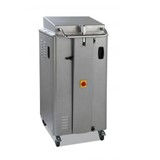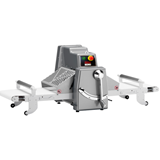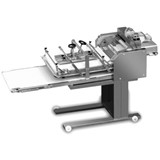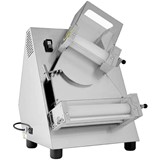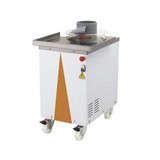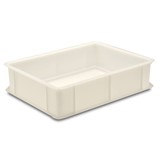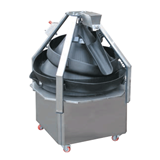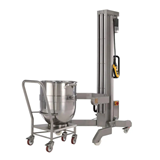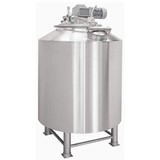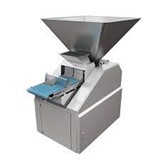According to business information analysts at IBISWorld, health-conscious consumers are eating less bread, but spending more on organic, wholegrain and gourmet breads.
Per capita bread consumption has fallen 20 per cent over the past 60 years - from 64 kilograms per person to 51.2 kilograms - according to the Australian Bureau of Statistics. IBISWorld expects that big brand sliced white bread is losing market share as consumer tastes become increasingly sophisticated.
This year, IBISWorld forecasts total bread sales will grow by around 3.5 per cent to total $2.5 billion.
Overall revenue from bread manufacturing is tipped to grow by around two per cent per annum over the next five years. However specialty industry sectors - such as artisan breads, wholegrains, organic and gluten-free breads - are expected to considerably outperform the traditional white bread varieties.
IBISWorld general manager (Australia) Karen Dobie forecasts artisan and gourmet breads will grow by 14.1 per cent this year, with wholemeal and seeded breads growing by 4.3 per cent. A slightly more stale performance is expected from white bread (2.5 per cent) and bakery snacks (2.1 per cent).
Spending by bread variety
|
Variety |
2012 ( per cent growth) |
2013 ( per cent growth) |
|
White bread |
2.5 |
2.4 |
|
Wholemeal and seeded breads |
4.3 |
4.5 |
|
Bakery snacks, cakes and pies |
2.1 |
2.3 |
|
Artisanal/gourmet breads |
14.1 |
15.5 |
"Overall there is a strong trend away from industrially baked white breads towards instore supermarket bakery goods and specialty artisanal bakeries. Having said that, white bread is still the most popular bread variety – accounting for 45 per cent of total bread sales", Dobie said.
Supermarkets still account for 67 per cent of total bread sales, compared with 20 per cent for bakery franchises such as Baker's Delight and Brumby's, while independent bakeries account for eight per cent and specialty and artisan bakeries lay claim to five per cent.
Rising in popularity
According to IBISWorld, there has been growth of ten per cent to 15 per cent for seeded, international, speciality and artisan breads in the past five years. This has occurred as consumer tastes have become increasingly sophisticated and influenced by the popularity of cooking television shows, celebrity chefs and rising health consciousness.
"Sourdough, flatbread and ciabatta have become common choices for our daily bread, a far cry from the past when white or brown were the only choices", Dobie said.
A flood of new entrants into the artisan niche are meeting rising demand from consumers. Dench Bakers, Phillippa's and Brasserie Bread are just a few of the emerging players.
"We're moving towards a more European approach of buying bread daily or every couple of days, whereas historically it was more like twice a week. This is driving an emphasis on quality, freshness and variety", Dobie said.
Industrial and plant bakers
In a bid to fight back popularity and profitability, industrial and plant bakers are introducing premium lines offering additional functionality, such as high-fibre, iron-enriched and low-GI breads.
A number of key large manufacturers have invested heavily in branding and new marketing strategies in the past year in order to reposition their products. For example, George Weston Foods is marketing its Tip Top One range as Australia's first nutritionally complete bread – boasting extra fibre, added vitamins and minerals.
Supermarket wars and private labels
Dobie said the so-called 'supermarket wars' have resulted in aggressive bread discounting, with both Coles and Woolworths offering one-dollar loaves. The battle has not had any marked effect on bread consumption, instead prompting some consumers to trade down from higher-value branded products.
Competition from instore supermarket bakeries is also eroding the market share of branded, industrially-baked bread.
"Sales of private-label bread have increased dramatically over the past decade, growing from 20 per cent to 55 per cent of all retail supermarket bread sales. Last year alone, private-label bread sales grew 34.1 per cent by volume, and 15.2 per cent by value."
Looking ahead, Dobie expects the trend of branded producers being substituted by private-label bread, in-house varieties and specialist bakeries.
"One of the key challenges of bread producers will be to balance their product portfolios to reflect changing consumer trends", Dobie said.


